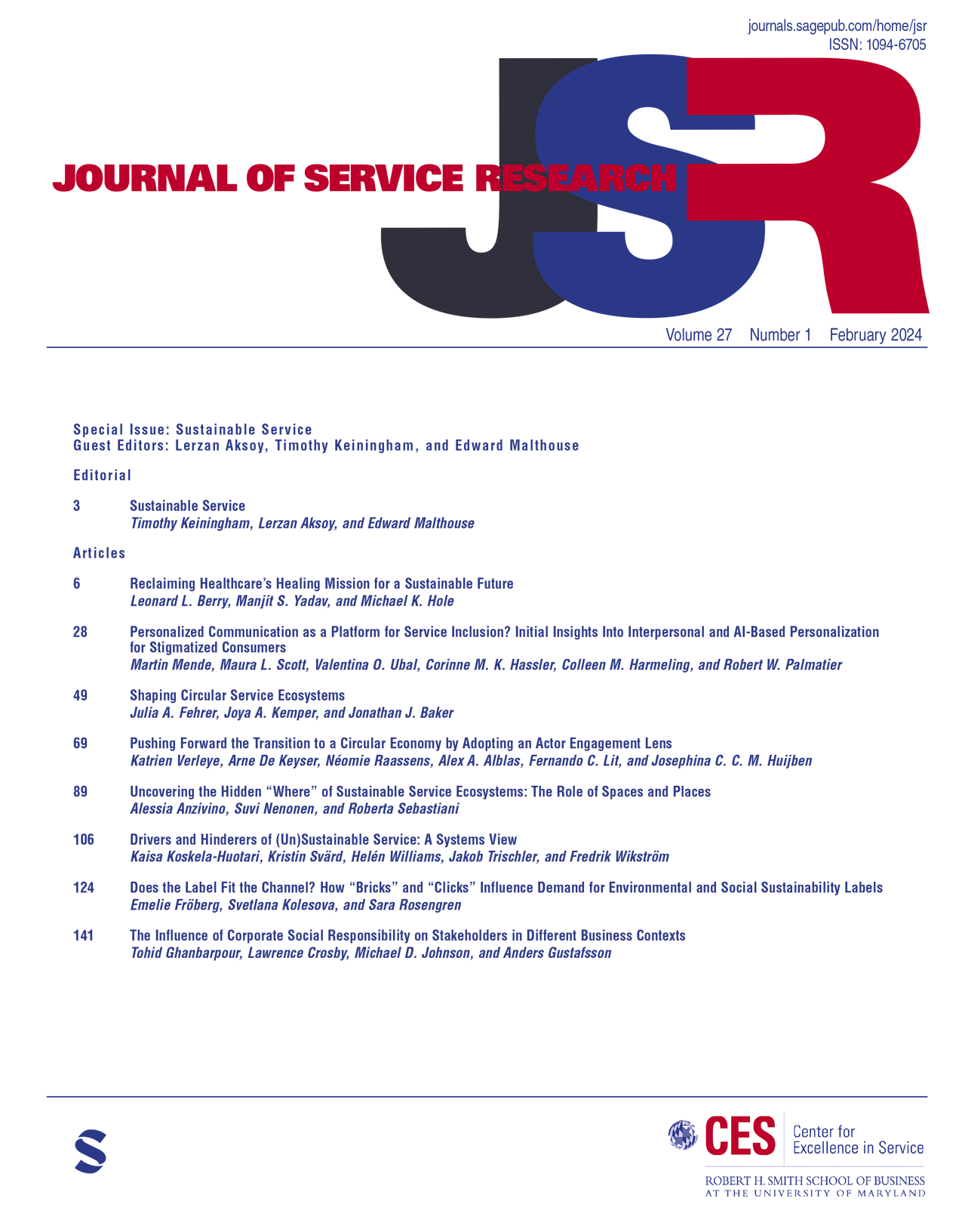Glocalization in Service Cultures: Tensions in Customers’ Service Expectations and Experiences
IF 8.6
2区 管理学
Q1 BUSINESS
引用次数: 2
Abstract
In the global world, service cultures interact. The co-shaping interaction of local and global service cultures is a form of glocalization. In China, interaction between traditional Chinese medicine (TCM) and Western medicine (WM) has produced glocalized versions of both services. Through analysis of customers’ experience of healthcare service in southwestern China, this paper addresses two research questions: What distinctive cultural resources do informants associate with WM and TCM? And how do tensions emerge in the contrast between customers’ expected and experienced cultural resources in glocalized healthcare service? The resource integration construct provides theoretical language to analyze customers’ service experiences in glocalized service cultures. One theoretical contribution resulting from this analysis is showing that culturally specific resources embedded in service systems emerge phenomenologically through resource integration in customers’ experiences. A second theoretical contribution resulting from this analysis is demonstrating how the mix of culturally specific resources from two glocalized services causes tensions and effects how experience is interpreted and valued. The article’s managerial contribution is a four-step culture-comparative resource framework. The framework can help managers identify tensions in customer expectations and experiences in glocalized service and identify needed changes to facilitate customers’ positive service experiences.服务文化中的全球本地化:顾客服务期望和体验中的紧张关系
在全球范围内,服务文化相互作用。本地和全球服务文化的共同塑造互动是全球本地化的一种形式。在中国,传统中医(TCM)和西医(WM)之间的互动产生了两种服务的全球本地化版本。本文通过对中国西南地区医疗保健服务客户体验的分析,提出了两个研究问题:被调查者认为中医和西医具有哪些独特的文化资源?在全球化医疗服务中,客户期望的文化资源和体验的文化资源之间的对比是如何产生紧张关系的?资源整合结构为分析全球化服务文化中的顾客服务体验提供了理论语言。从这一分析中得出的一个理论贡献是,服务系统中嵌入的文化特定资源通过客户体验中的资源整合而现象学地出现。从这一分析中得出的第二个理论贡献是,展示了来自两种全球本地化服务的文化特定资源的组合如何造成紧张关系,并影响经验的解释和价值。本文的管理贡献是一个四步文化-比较资源框架。该框架可以帮助管理人员识别客户期望和全球本地化服务体验中的紧张关系,并确定所需的变化,以促进客户的积极服务体验。
本文章由计算机程序翻译,如有差异,请以英文原文为准。
求助全文
约1分钟内获得全文
求助全文
来源期刊

Journal of Service Research
BUSINESS-
CiteScore
20.30
自引率
6.50%
发文量
28
期刊介绍:
The Journal of Service Research (JSR) is recognized as the foremost service research journal globally. It is an indispensable resource for staying updated on the latest advancements in service research. With its accessible and applicable approach, JSR equips readers with the essential knowledge and strategies needed to navigate an increasingly service-oriented economy. Brimming with contributions from esteemed service professionals and scholars, JSR presents a wealth of articles that offer invaluable insights from academia and industry alike.
 求助内容:
求助内容: 应助结果提醒方式:
应助结果提醒方式:


